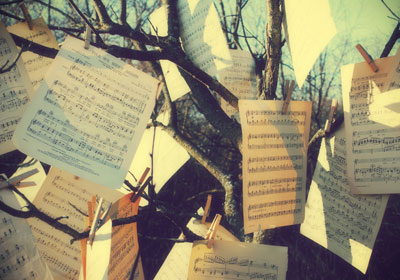All Nonfiction
- Bullying
- Books
- Academic
- Author Interviews
- Celebrity interviews
- College Articles
- College Essays
- Educator of the Year
- Heroes
- Interviews
- Memoir
- Personal Experience
- Sports
- Travel & Culture
All Opinions
- Bullying
- Current Events / Politics
- Discrimination
- Drugs / Alcohol / Smoking
- Entertainment / Celebrities
- Environment
- Love / Relationships
- Movies / Music / TV
- Pop Culture / Trends
- School / College
- Social Issues / Civics
- Spirituality / Religion
- Sports / Hobbies
All Hot Topics
- Bullying
- Community Service
- Environment
- Health
- Letters to the Editor
- Pride & Prejudice
- What Matters
- Back
Summer Guide
- Program Links
- Program Reviews
- Back
College Guide
- College Links
- College Reviews
- College Essays
- College Articles
- Back
Music in the Park
On Friday nights after class in the summer, I needed to escape the stuffy dorm. Marcie said I studied too much anyways. She was more than happy to take me away with her when I burst out saying I needed out of this place.
"The park," she announced decidedly. "You have to see the park."
"What's there?" I asked, pulling on my jacket absentmindedly as Marcie disappeared into the bathroom.
She peeked her head around the corner of the chipped white door frame—eyes sparkling. "Boys. Black, white, Hispanic. Maybe Asian."
I watched her spritz perfume all over her body. Marcie never had trouble with boys. Where I was tall and lanky—built like a boy—Marcie was shorter and endowed with many becoming curves. Her mulatto skin was pale enough that she looked like a white girl who tanned well, but her mop of dark brown curls were too much like an afro to fool many people. Admiring the way her crop top fit snugly and how her jeans accentuated her hips only made me self-conscious in a loose black T and leggings with an oversized, mens, blue leather jacket hanging loosely from my scarecrow thin, bony, shoulders.
Looking me over with a critical eye, she added, "There's also music."
I fingered my coarse, deadlock-like, braids only once before locking the heavy dormitory door behind us on our way out.
Marcie and I linked arms as we headed out into the night and Marcie leaned into me almost drunkly and declared, "We ghetto girls clean up fine."
I couldn't help smiling. Marcie and I grew up in the same neighborhood as children—we were like sisters. My momma worked nights so Marcie would stay at our apartment during the days while her mother worked, and after supper when Momma went to work, Marcie's mother would tuck us into the same bed for the night. We'd never been the best students—never thought of college. We skipped school a lot. In high school we finally straightened up, applied for financial aid, and got ourselves into university.
People never understand why we call folks outside of our family "brothers" and "sisters" but that's exactly what Marcie and I are. We knew everything about each other. She never told Momma how I found the key to her lockbox and took a whole $8 when I saw my birth certificate in there and that—unlike what Momma said—I did have a father and his name was written right there in Momma's neatest print. And in return, I never told her how scared I'd been when she clamored out the window after her mother was asleep with so much lipgloss buttering her lips that the outside of them shone in the moonlight.
In the dark all I could see of the park surrounding me was a scattering of stone benches and the outline of trees clumped around a small stage, their leaves just far enough apart for moonlight to stream in. A rowdy group of boys with long-necked beer bottles sat off to one side, while sober but stupid girls giggled on the other—some on the laps of boys who looked half-attractive from the general lack of light with which you could see them. It didn't take long for Marcie to disappear from my side—instead settling herself in the warm and welcoming arms of a guy she may or may not have known.
Feeling out of place and alone, I took steps to avoid the seemingly at ease strangers and wandered off—running my fingers along the edges of the cold cement stage—raised about four feet from the ground. That's when the music began.
Onstage was a woman. She wore a red dress—short-sleeved with the light airiness of a chiffon that rippled as she swayed—letting the wind shape her. She tipped her face into the humid night air and sent a song into the air to shape the sparse wind and give it body. Her short heels tapped to the hidden beat soulfully buried in the music. If you looked behind her, you could just make out a rickety piano and pianist, a saxophonist, and a bass with its shady old master gently plucking each string in time with spindly, wise, fingers.
People danced. Some kicked up their heels—schoolgirl skirts flapping—like in a '20s jazz club. Some twisted and weaved and swung their hips in a sultry tribute to being modern. Marcie laughed and grabbed the hand of a boy and teetered on his feet in a real slow waltz.
And then there was her—the singer—her chocolate skin smooth and flawless in the light and big, loose, black curls that rested just above her shoulders. She was strong and tall and untouchable. She sang skat and then sang again—embodying our struggles and our dreams and little, everyday, hope. We were city girls--classy as pearls-- and had many years left to come.

Similar Articles
JOIN THE DISCUSSION
This article has 0 comments.
